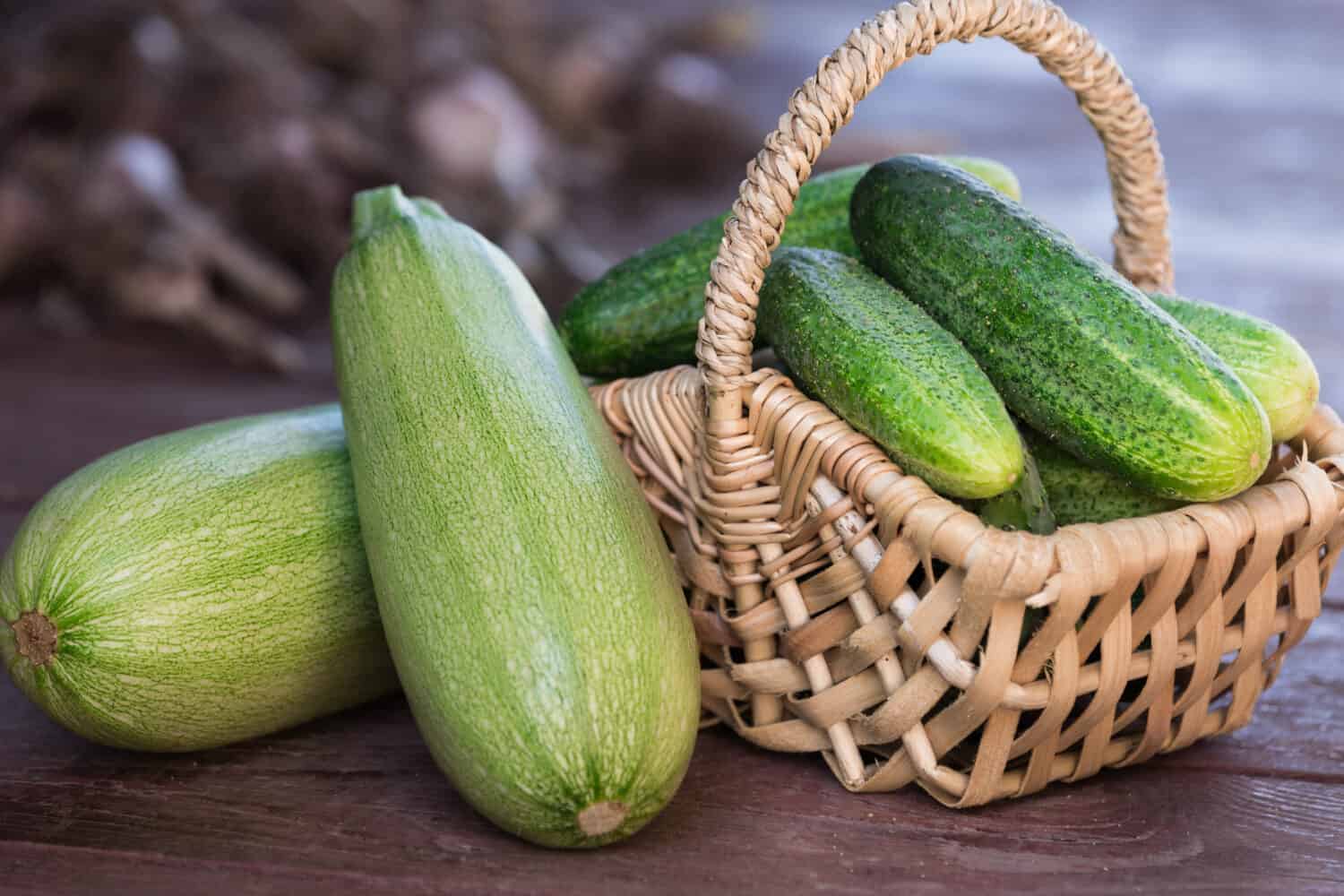Zucchini and cucumber, green vegetables from the gourd family, appear the same to many people. There is even confusion regarding how to classify them. Are they fruits or vegetables? While both are classified as fruits, specifically as berries, zucchinis and cucumbers have flavors and textures more akin to vegetables. Berries typically appear in sweeter dishes, while these foods appear in savory recipes, so they are known as vegetables for cooking purposes.
While they appear very much alike, these gourds differ in six specific ways, including taste, texture, and cooking use. We will examine how they differ, consider the health benefits of each, and explore the best recipes for them. Let us compare zucchini vs. cucumber and see how they stack up.
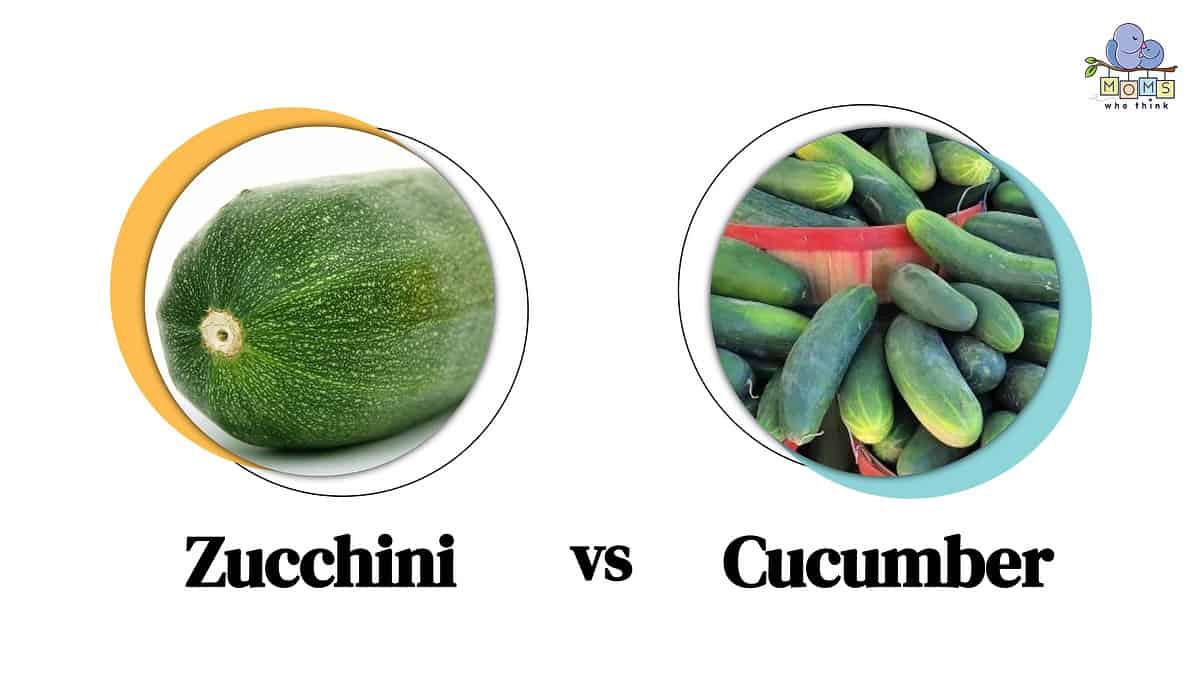
Zucchini vs. Cucumber: What is a zucchini?
Zucchini is an incredibly versatile summer squash harvested before it matures and its skin and seeds become tough. They come in various shades of green, including dark green and light green. Sometimes, they may appear yellow.
Zucchini appear long and cylinder-shaped. Usually, they are shorter and rounder than cucumbers. Their sweet and nutty flavor makes them a versatile choice in the kitchen. Commonly appearing in sautés, stir-fries, casseroles, salads, and even baked goods like zucchini bread, they may be sliced, diced, grated, or stuffed.
Zucchini vs. Cucumber: What is a cucumber?
Cucumbers are also long with smooth, dark green skin. They can range in size from small pickling cucumbers to large slicing cucumbers.
Cucumbers taste mild and slightly sweet. Moreover, they have a lot of water, making them a good source of hydration. For this reason, people often eat them raw and fresh rather than cooking them. Cucumbers are a crucial component of salads and sandwiches and sometimes appear in cold soups like gazpacho. When cucumbers are preserved in vinegar, they become pickles.
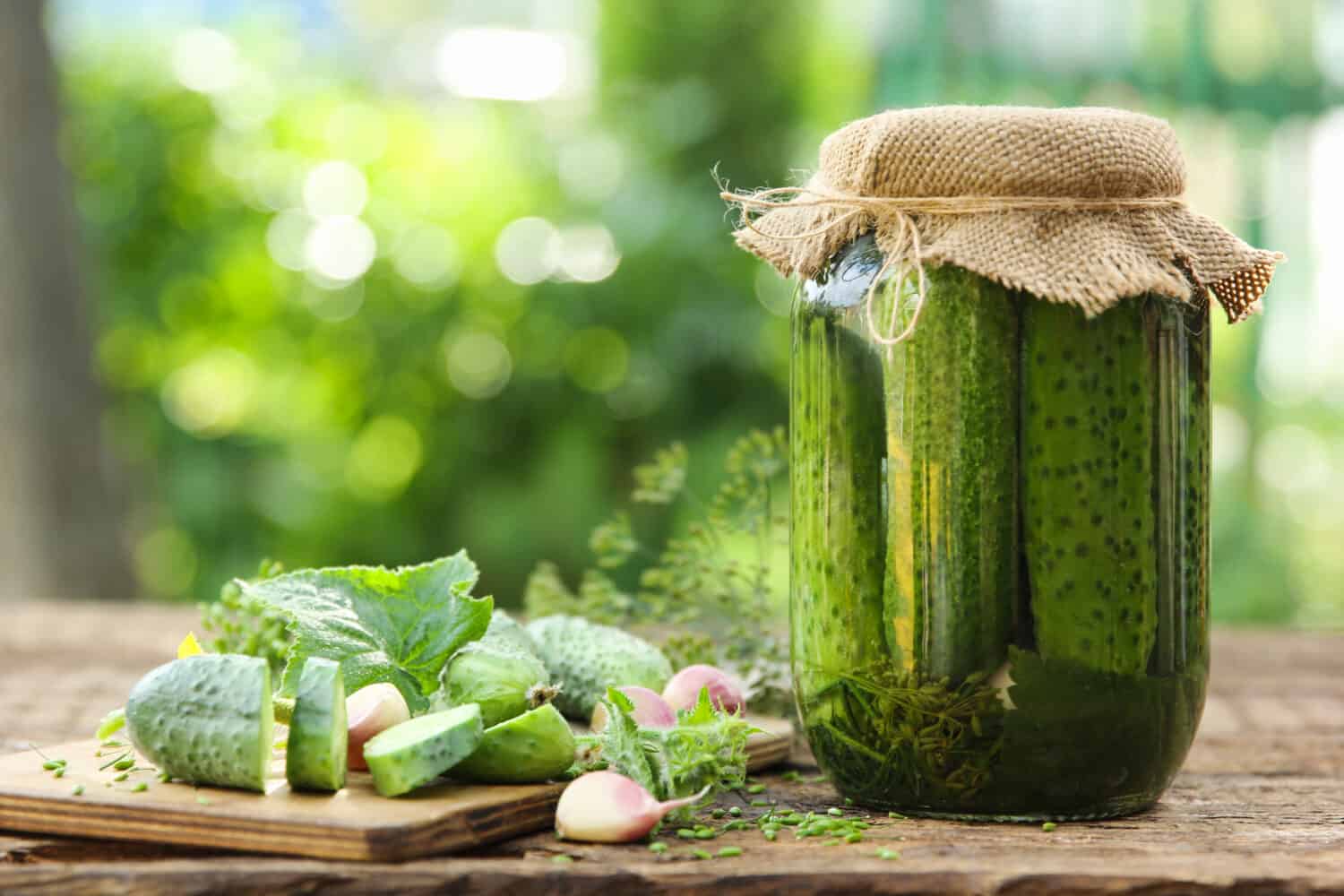
©Nadezhda Murinets/Shutterstock.com
Zucchini vs. Cucumber: Key Differences
Now that we know what they are, let us examine the key differences between zucchini and cucumbers. Below is a table providing an overview of their most significant differences.
| Zucchini | Cucumber | |
|---|---|---|
| Appearance | Zucchini are shorter and thicker than cucumbers. | Cucumbers vary in size but are typically long with dark green skin. |
| Skin Texture | The skin texture is rougher and thicker than that of a cucumber. | Their skin is smooth and can be eaten, although some people peel them. |
| Flavor | Slightly sweet or nutty, they have a milder flavor than cucumbers. | Cucumbers are crisp, mild, and sweet. Sometimes, they have a slightly bitter taste. |
| Seeds | Zucchini have small seeds that do not affect dishes. | They have large seeds that can make a dish watery if not scooped out. |
| Cooking Use | They appear in both savory and sweet dishes. | Cucumbers are the main ingredient in pickles,. They commonly appear in sandwiches and salads. |
| Nutritional Differences | Zucchini is a good source of Vitamins A and C. | Cucumbers are water-rich and high in Vitamin K. |
Zucchini vs. Cucumber: Nutritional Benefits
Zucchini and cucumbers are low-calorie foods offering a range of health benefits due to their nutrients. While they are similar, they also have distinct nutritional differences. Here's a comparison of the health benefits of zucchini vs cucumber.
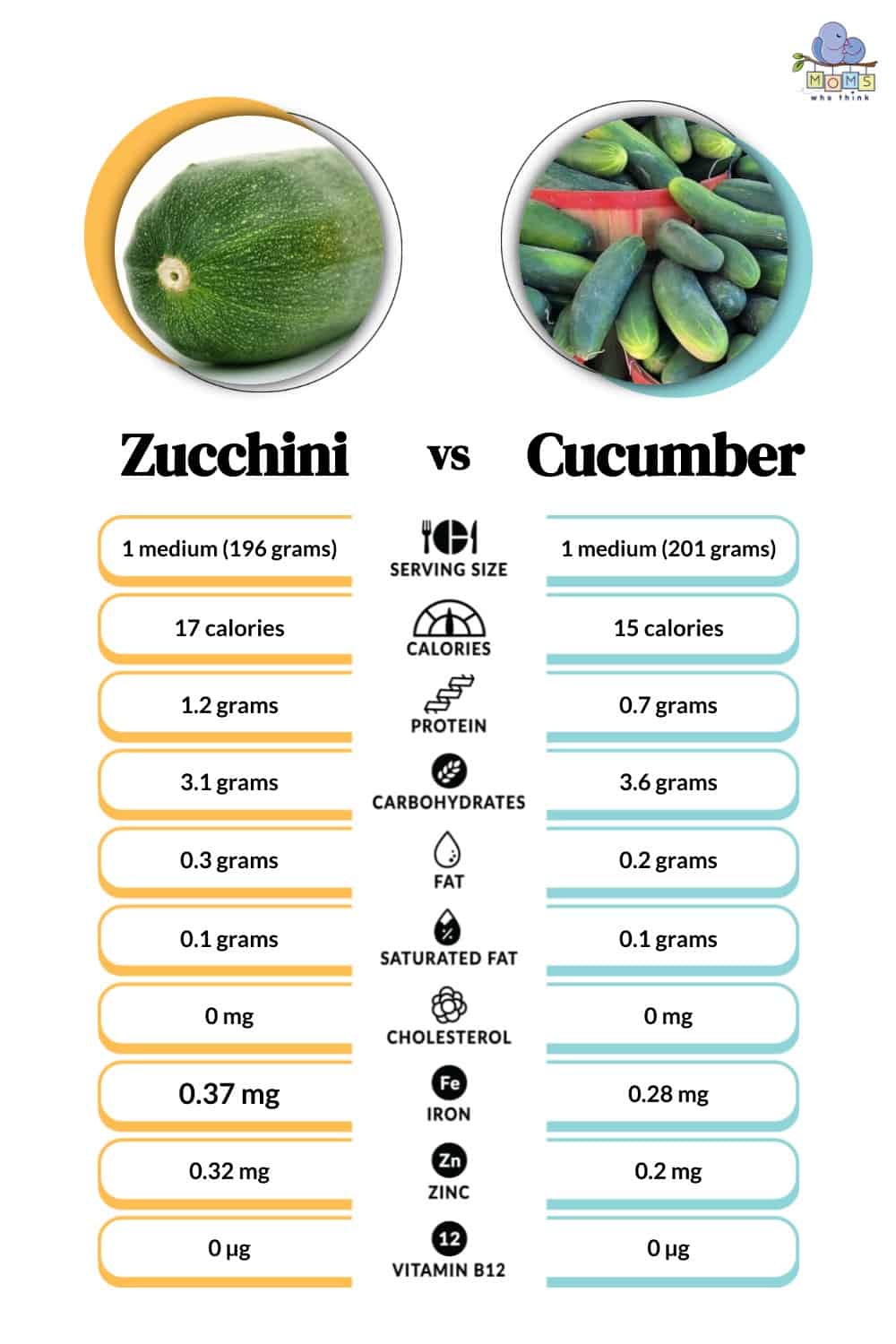
Their shared health benefits include being low-calorie, high-fiber foods. Additionally, both are good sources of Vitamin A and other micronutrients.
Individually, zucchini is an excellent source of antioxidants like Vitamin C. They are also low in sodium, making them suitable for people watching their salt intake. On the other hand, cucumber is a good source of silica, a compound that promotes healthy hair and skin. Cucumbers also cool and hydrate, which is why cucumbers often appear in beauty products.
Overall, both zucchini and cucumbers provide several health benefits as part of a balanced diet. They are low in calories, provide hydration, and contribute vitamins and minerals to your body. Incorporating both into your diet offers a wide variety of health benefits.
Zucchini vs. Cucumber: Recipes
Now that we understand how they are alike and different, here are five great recipes to try for zucchini and cucumber.
Five great zucchini recipes
If you have an overabundance of cucumbers, here are five recipes to consider.
Five great cucumber recipes
- Cucumber Salad with Garlic
- Steak Tacos with Cucumber-Avocado Salsa
- Buckingham Palace Garden Party Cucumber Sandwiches
- Cucumber Avocado Gazpacho
- Refreshing Lemon and Cucumber Water
Perhaps you would like to try a recipe incorporating both zucchini and cucumbers? Try this zucchini cucumber salad recipe.
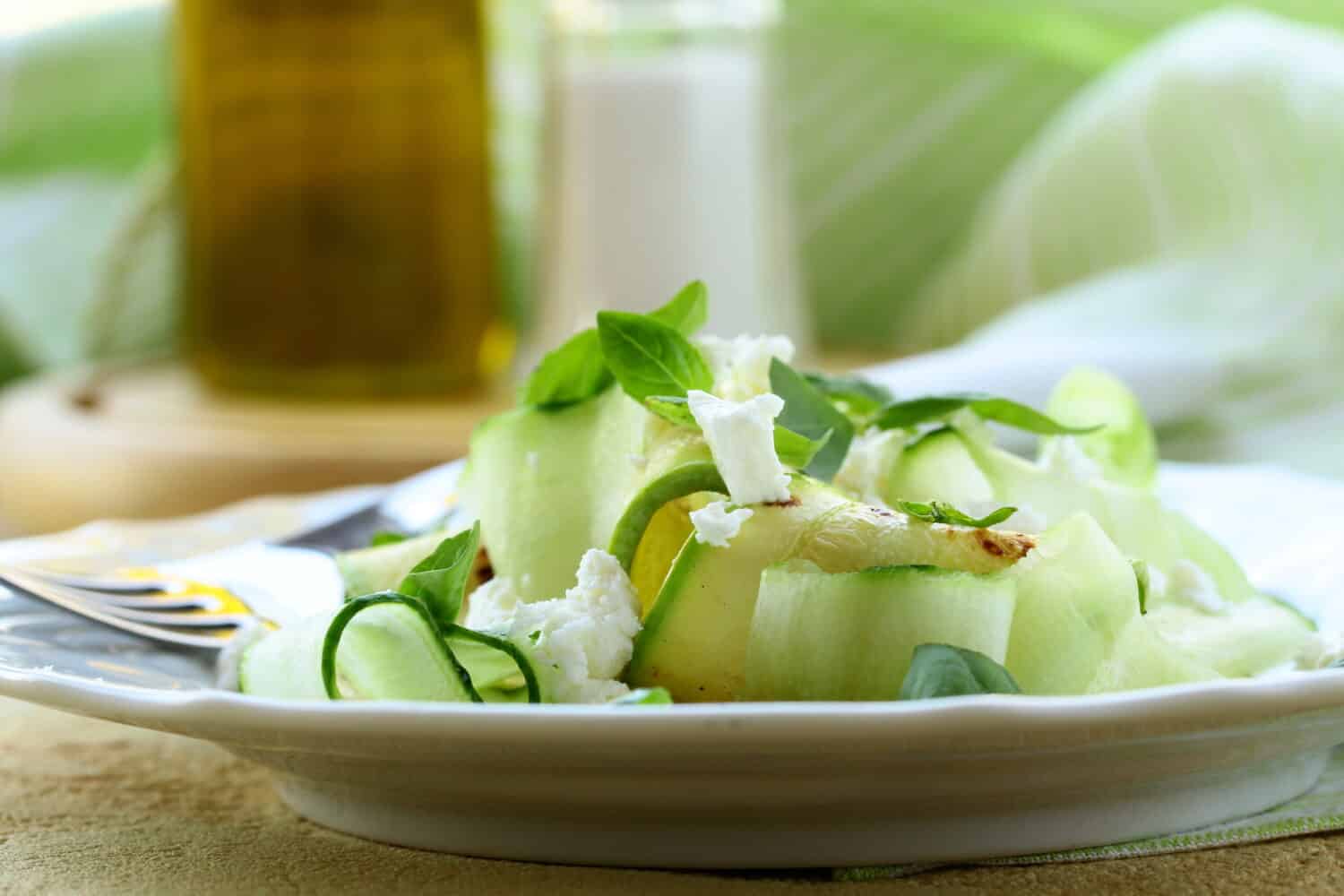
©Dream79/Shutterstock.com
In Summary
Zucchini and cucumbers are nutritious foods that can be incorporated into a variety of dishes. Zucchini appears in sweet and savory recipes, whereas cucumbers are popular raw or added to sandwiches or salads. Moreover, cucumbers preserved in vinegar become pickles.
Their nutritional similarities include low calories and providing essential vitamins and minerals. Zucchini are rich in antioxidants and vitamin A, while cucumbers provide cooling and hydration due to their significant water content. The two are often combined in salads, doubling the health benefits. Both are excellent additions to a well-rounded, healthy diet.
The image featured at the top of this post is ©Fotoksa/Shutterstock.com.
